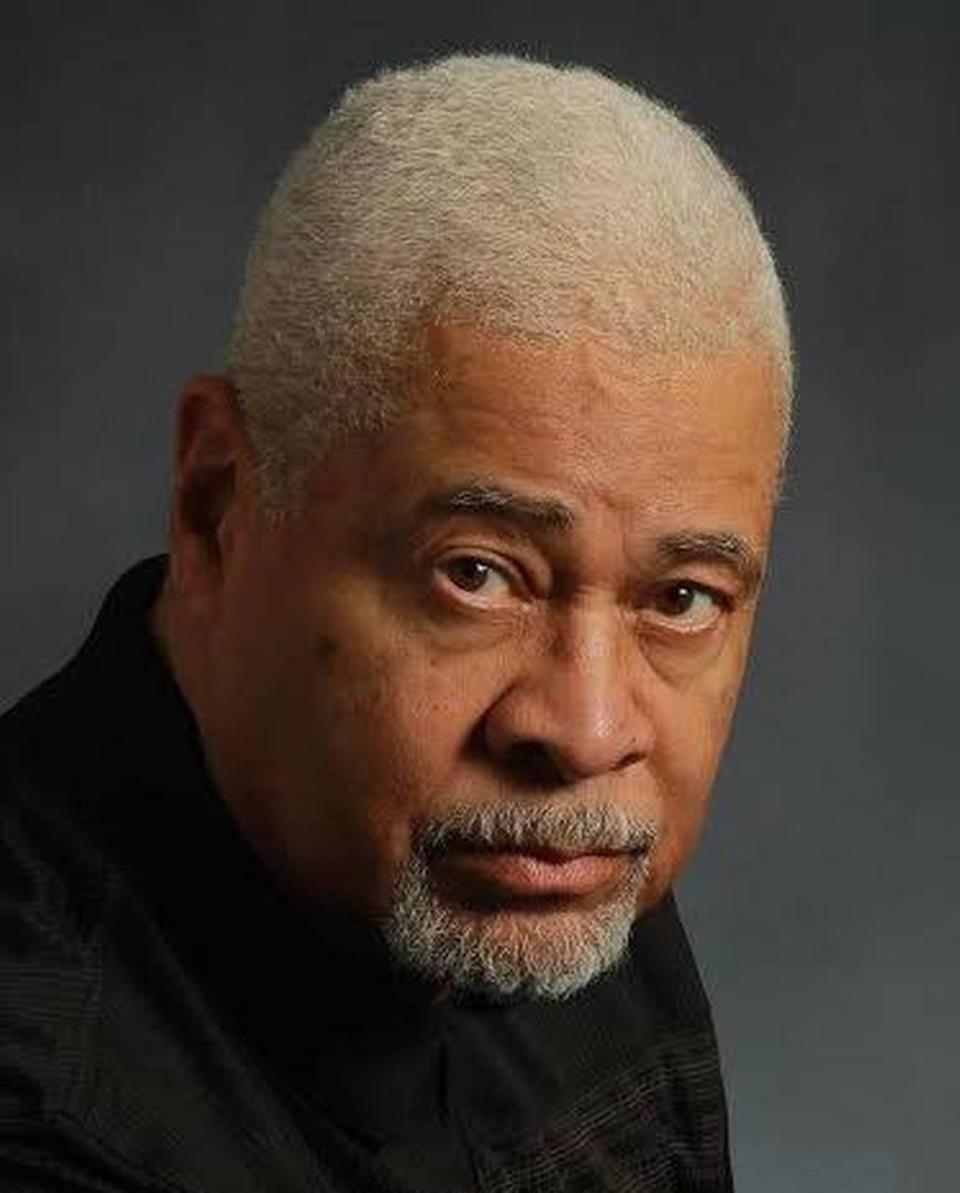Under the baobab: Keep climbing the mountain during Black History Month and beyond
- Oops!Something went wrong.Please try again later.
“We’ve got some difficult days ahead. But it really doesn’t matter with me now, because I’ve been to the mountaintop.” — MLK, Memphis, 1968
Happy Black History Month, fellow mountain climbers.
Like millions of others, I began this BHM watching the funeral of our brother, Tyre Nichols, which was organized by the Rev. Al Sharpton. His homegoing ceremony at Mississippi Boulevard Christian Church in Memphis was a deeply moving experience, witnessed by many dignitaries. Vice President Kamala Harris came to mourn with the family and give us all our marching orders.
“We demand that Congress pass the George Floyd Justice and Policing Act, and Joe Biden will sign it. We should not delay. And we will not be denied. It is non-negotiable.” In response the large crowd erupted into empathetic applause and “amens.”
This ceremony, celebrating the life of Tyre, took place where Rev. Martin Luther King was assassinated by white supremacists in 1968. At the time it signaled a major transition in the civil rights movement. A cycle of renewed commitment to progressive change followed a period of chaos and confusion. It generated transformative events like Roe v. Wade, the election and reelection of President Obama, the Obergefell decision, and the election of Vice President Harris. Many believe that the scourging and murder of Tyre by five policemen will ignite a similar change in our national community.
I grew up on the South Side of Chicago in the ‘50s and ‘60s. I was a typical Black working class kid. I ran with a bunch of friends, not quite a gang. We were a crew that clung together for camaraderie and protection. We didn’t own guns or any real weapons. We used fists, garbage can tops, car antennas for those rare rumbles we had with other groups of kids. We didn’t deal in drugs. Cheap wine and beer were our drugs of choice. We had few encounters with police that escalated into violence. No one died.
In those days various forms of race-based lynching were still prevalent. My dad’s family left Mississippi because his best friend was lynched and his community was under threat of attack. In the Black community revenge could be visited upon the group based on individual misdeed or perceived criminal offense. Police often facilitated the process rather than prevented it. Black folks sometimes used self-imposed force and violence to repress exuberant behavior particularly among our young men. It was an attempt to protect the community from potential white retaliatory violence. The purpose of police in those days was not to prevent faceless crime but to manifest social control of undesirables. Under the system of white supremacy those undesirables were identified as black, brown and/or poor. Jill Lepore argues in a July 20, 2020 New Yorker article that urban police departments have their roots not in crime prevention but in slave patrols used to capture, control and punish enslaved Africans. Bryan Stevenson says police are trained to be warriors not guardians.
Here in Happy Valley we have had issues of police confrontation and escalation. When former Police Chief King and Rev. McKensie foresaw the possibility of problems, they convened citizens, police officers and public officials to seek solutions. They called the group Community and Campus in Unity (CCU). Presently under the leadership of Terry Watson, CCU has an email list of over 100 people. As we attempt to build our “beloved community,” this kind of local action and participation is essential in addressing the changing dynamic in police policy. Keep climbing, sisters and brothers.
“He’s allowed me to go up to the mountain. I’ve looked over. I’ve seen the Promised Land. I may not get there with you. But I want you to know tonight, that we, as a people, will get to the promised land!” -MLK, Memphis 1968
Charles Dumas is a lifetime political activist, a professor emeritus from Penn State, and was the Democratic Party’s nominee for U.S. Congress in 2012. He was the 2022 Lion’s Paw Awardee and Living Legend honoree of the National Black Theatre Festival. He lives with his partner and wife of 50 years in State College.


